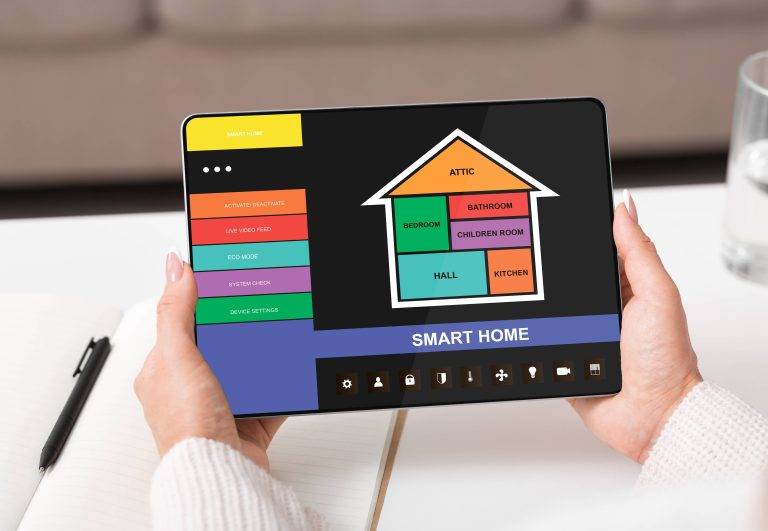
As climate change increasingly grips our planet with its myriad of challenges, ranging from severe weather patterns to rising sea levels, it is more critical than ever to re-evaluate our daily practices and how they impact our environment. In the realm of home living, the advent of smart home technology has not only elevated our convenience and comfort but has introduced significant strides in energy efficiency and sustainability. This blog post aims to delve into how smart homes can play a pivotal role in fighting climate change, highlighting specific technologies, their benefits, and practical steps you can take to make your home smarter and greener.
Why Smart Homes Matter
The increasing concerns over global warming and environmental sustainability have led many to seek innovative solutions that curb energy consumption and reduce carbon footprints. Smart homes—houses equipped with advanced automation systems for controlling energy usage, lighting, heating, and appliances remotely—stand at the forefront of these efforts. As energy use in homes accounts for a substantial proportion of total global energy consumption, optimizing this segment can lead to meaningful reductions in greenhouse gas emissions.
Embracing Energy Efficiency
At the heart of smart home technology lies energy efficiency. Smart devices such as thermostats, lighting systems, and appliances are designed to minimize energy wastage and maximize efficiency. For instance, smart thermostats learn your schedule and adjust the temperature accordingly, ensuring you are not heating or cooling an empty home. This advanced management leads to significant energy savings while maintaining comfort levels.
Similarly, smart lighting systems offer energy-efficient LED bulbs paired with sensors and intelligent timers. These systems can detect when a room is vacant and adjust the lighting accordingly, eliminating unnecessary power consumption. Moreover, they can capitalize on natural daylight by adjusting artificial lighting to optimal levels, further conserving energy.
Renewable Energy Integration
Smart homes are also adept at integrating renewable energy sources, such as solar panels and wind turbines, into the existing power grid. Home energy management systems (HEMS) give homeowners the ability to monitor and control their energy consumption from these renewable sources. By optimizing when and how energy is used, smart homes can maximize the use of clean, renewable energy, thereby reducing reliance on fossil fuels and lowering carbon emissions.
Storage solutions like smart batteries are another game-changer, allowing homes to store excess energy generated during peak production times and use it during high-demand periods. This not only enhances the efficiency of renewable energy use but also helps in balancing the grid, making the energy supply more stable and resilient.
Water Conservation
Beyond just electricity, smart home technologies extend to water usage, a critical yet often overlooked area of sustainability. Smart irrigation systems for gardens and landscapes use weather forecasts and soil moisture levels to optimize watering schedules. This ensures that plants receive just the right amount of water needed, reducing waste. Inside the home, smart water heaters and leak detectors prevent water waste and manage heating cycles more precisely, cutting down on energy use and water wastage simultaneously.
Waste Reduction
Smart homes also contribute to reducing waste through automation of home appliances and recycling practices. For instance, smart refrigerators can help minimize food waste by keeping track of expiry dates and sending reminders to use products before they spoil. Smart waste bins can even assist in sorting recyclables from trash, ensuring more efficient and effective recycling processes.
Behavioral Change and Education
One of the most profound impacts of smart home technology lies in its ability to foster behavioral change and increase awareness of energy use. Real-time data on energy consumption provided by smart meters and home energy monitors can enlighten homeowners about their daily habits and highlight opportunities for further savings. This continuous feedback loop educates and motivates residents to adopt more sustainable practices, making energy efficiency a part of everyday life.
The Role of Connectivity and Automation
Automation, facilitated by the Internet of Things (IoT), is another significant aspect of smart homes. By connecting various devices and systems seamlessly, smart homes can manage energy use more dynamically. For instance, a connected smart home can use weather data to adjust smart blinds, thermostats, and lighting systems for optimal energy use throughout the day. The ability of these systems to communicate and collaborate ensures that energy is used as efficiently as possible, reducing overall consumption.
Overcoming Challenges
While the benefits of smart homes in combating climate change are immense, some challenges need to be addressed. Upfront costs of smart home devices can be a barrier for many homeowners. However, it is essential to consider these as long-term investments that pay off through reduced energy bills and increased home value. Additionally, as technology advances and becomes more widespread, costs are expected to decrease, making smart home solutions more accessible.
Privacy and security are other concerns, as the increased connectivity of smart devices raises the risk of data breaches. Ensuring robust cybersecurity measures, such as encryption and regular software updates, is vital to safeguard against potential threats.
Conclusion
The fight against climate change is multifaceted and requires collective efforts across various sectors. Smart homes, with their energy-efficient technologies, water conservation methods, waste reduction capabilities, and potential to foster behavioral change, are a critical component of this battle. By embracing smart home solutions, we can make significant strides toward a more sustainable future, reducing our carbon footprint, conserving resources, and ultimately mitigating the impacts of climate change.
As we continue to innovate and refine smart home technologies, the opportunity to create homes that are not only convenient and comfortable but also ecologically responsible is within our reach. So, whether you are a homeowner looking to upgrade your living space or someone passionate about sustainability, consider the possibilities of smart home technology as a valuable ally in the fight against climate change.







